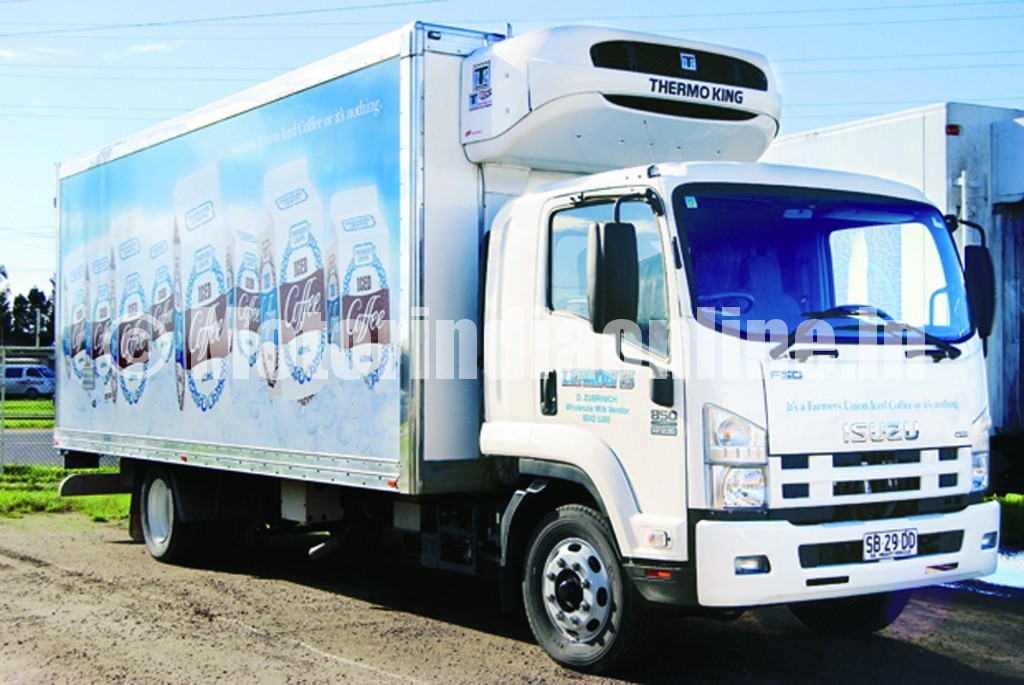Finding the Right Cold Transport Companies for Your Logistics
Finding the Right Cold Transport Companies for Your Logistics
Blog Article
A Thorough Review of the Devices Behind Refrigerated Vehicle Transportation and Its Role in Food Safety
Refrigerated truck transportation is vital in maintaining food security, using sophisticated temperature level control devices and insulation innovations to guard disposable items during transit. What ramifications do these variables have for the future of food safety?
Value of Refrigerated Transportation
Refrigerated transport plays a crucial role in preserving the stability and safety and security of perishable goods throughout the supply chain (transport refrigeration). This specific logistics system is necessary for maintaining the quality of foodstuff, consisting of fresh fruit and vegetables, dairy items, meats, and seafood, which are vulnerable to spoilage when exposed to temperature fluctuations. The ability to maintain a controlled and consistent environment guarantees that these goods keep their nutritional value, flavor, and safety for consumers
Furthermore, cooled transport lessens the threats of foodborne diseases, which can arise from the development of damaging microorganisms in poorly stored things. By sticking to rigorous temperature level needs, businesses not just follow regulative standards but also foster consumer trust and brand integrity. The economic ramifications are considerable; minimized wasting rates convert to reduced losses for stores and distributors, contributing to overall success.
Furthermore, the increasing worldwide demand for fresh and high-grade food additionally highlights the value of refrigerated transportation. As supply chains become extra complicated and expand globally, the need for efficient temperature-controlled logistics remains to expand, underpinning the whole food distribution network and ensuring that disposable items reach their locations safely and effectively.
Temperature Control Systems
Keeping optimal temperature level control is vital in the transportation of perishable products, and a selection of mechanisms are utilized to attain this goal. Cooled vehicles utilize sophisticated refrigeration systems, primarily making use of vapor compression modern technology, which circulates cooling agent via evaporator and condenser coils to draw out warm from the freight area. This process makes sure that the inside remains constantly cool, consequently maintaining the high quality and safety and security of the products being delivered.
In addition, trucks are furnished with temperature level surveillance systems that provide real-time data on the interior atmosphere. These systems usually consist of electronic sensors and alarms to alert operators in situation of temperature level variations, making it possible for prompt corrective actions. Some refrigerated trucks also feature programmable temperature settings, permitting for specific control customized to particular kinds of freight, such as drugs, vegetables, or fruits.
Additionally, using pre-cooling methods before packing enhances the effectiveness of temperature control. By decreasing the freight location's temperature prior to the intro of items, the threat of temperature level spikes throughout transportation is lessened. These systems collectively add to a trusted cool chain, necessary for preserving the integrity and safety of subject to spoiling food things throughout the transport procedure.
Insulation Technologies
Insulation modern technologies play an essential function in improving the performance of chilled truck transport by reducing thermal exchange between the freight location and the exterior setting. Reliable insulation is vital for maintaining the called for temperature level for subject to spoiling items, thereby guaranteeing food security and high quality during transit.
Typical insulation products used in chilled vehicles include polyurethane foam, polystyrene, and fiberglass, each offering varying degrees of thermal resistance. Polyurethane foam, recognized for its remarkable protecting properties, is often applied as inflexible panels that can be built to fit the truck's interior.

Advanced Monitoring Solution
To ensure the stability of perishable goods throughout transportation, advanced monitoring systems have become a crucial innovation in the cooled vehicle sector - refrigerated truck companies. These systems make use of a combination of sensors, click this link information loggers, and real-time tracking modern technologies to continuously keep an eye on temperature level, humidity, and total freight problems throughout the trip. By offering immediate feedback on ecological variables, these systems enable for punctual corrective actions, thus safeguarding item top quality
Modern monitoring systems are outfitted with cordless connectivity, making it possible for seamless information transmission to logistical centers and stakeholders. This connection helps with remote surveillance, which is important for keeping compliance with sector laws and criteria. Alerts can be generated in real-time, informing drivers of any inconsistencies from pre-set thresholds, therefore decreasing the threat of wasting.
Moreover, the assimilation of sophisticated analytics and machine learning formulas boosts predictive capacities, enabling better planning and threat analysis. Historical data accumulated from these systems can inform future transport approaches, maximizing paths and decreasing prospective threats. Overall, the deployment of innovative surveillance systems stands for a considerable advancement in the refrigerated transportation field, strengthening the dedication to maintaining the high quality and security of perishable goods throughout their journey.
Influence On Food Safety Criteria
The assimilation of sophisticated monitoring systems in chilled vehicle transportation has considerably affected food safety and security standards throughout the supply chain. These systems enable real-time monitoring of temperature level, humidity, and other important parameters necessary for keeping the integrity sites of subject to spoiling goods. By making certain that items remain within specified temperature level arrays throughout transportation, these innovations minimize the danger of microbial growth and putridity, which are pivotal in food security.

The adoption of information analytics likewise enables for aggressive decision-making, making it possible for firms to identify possible issues before they escalate into food safety violations. Consequently, the consolidation of sophisticated surveillance systems not only enhances operational performance yet also cultivates greater accountability in the food supply chain. This evolution emphasizes the critical function of innovation in boosting food safety and security standards and making sure consumer self-confidence in the items they get.
Verdict
To conclude, cooled truck transport is vital for keeping food safety via efficient temperature level control, progressed insulation technologies, and continual surveillance systems. These mechanisms work synergistically to protect the high quality of disposable products and lower the risk of foodborne health problems. Adherence to strict food safety criteria is accomplished with the application of these technologies, highlighting the important function of refrigerated transportation in the food supply chain and its effect on public wellness.
Cooled truck transport is essential in preserving food safety and security, utilizing sophisticated temperature control mechanisms and insulation technologies to protect disposable items during transit - transport refrigeration companies. Correct upkeep of insulation stability, including regular checks for wear or damages, is also vital to receive the efficiency of chilled transport systems and guarantee compliance with food safety guidelines
The integration of innovative tracking systems in refrigerated truck transportation has actually substantially influenced food security requirements across the supply chain.In verdict, cooled vehicle transport is necessary for preserving food security through reliable temperature control, progressed insulation modern technologies, and continuous surveillance systems. Adherence try this site to strict food security standards is attained via the implementation of these innovations, highlighting the critical duty of cooled transport in the food supply chain and its influence on public health.
Report this page